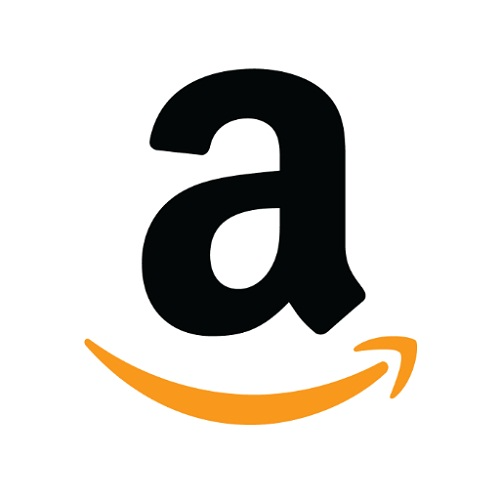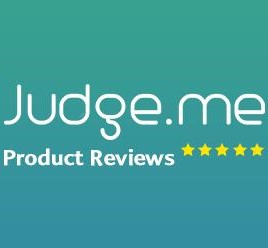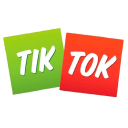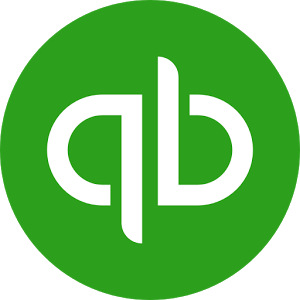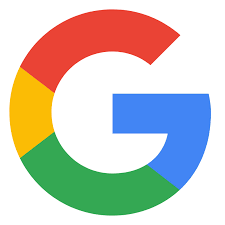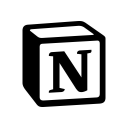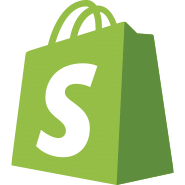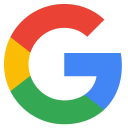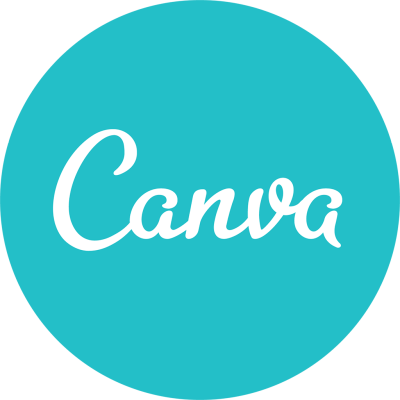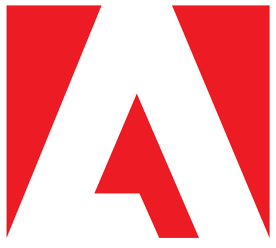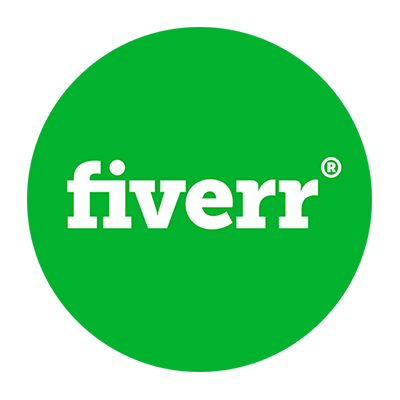I Launched A Dental Brand Anonymously And Grew It To $100K/Mo
Hello! Who are you and what business did you start?
Hello my name is [redacted] but my internet friends call me Gator. I’m a dentist and I talk about oral health on twitter. Pseudonymous social media accounts are not without their critics, and many of them are justified. I come from a background of being heavily involved in the dental community, educating dentists from around the world. I started my account under a pseudonym for a few reasons, mainly out of respect for my staff and patients.
After receiving some attention and growth on twitter, I was repeatedly met with the question “when are you going to make a toothpaste?”. Long story short, that’s exactly what I did. It turns out a lot of people like it, and are receiving glowing reports at their annual dental checkups. So I started a business called Biöm.

What's your backstory and how did you come up with the idea?
I used to suffer from a condition known as “Geographic Tongue”, which is a chronic sensitivity of the tongue making spicy food and pineapple feel like battery acid. I was actually paraded around my peers in dental school as a demonstration of what it looks like.
Despite its description, it’s fairly common. Many people aren’t acutely aware that they have it too, but notice an ebb and flow of tongue sensitivity. Turns out, this condition is exacerbated by many of the industrial detergents in commercial toothpaste (mainly Sodium Lauryl Sulfate).
After enough trial and error, I realized my best route would be to make my own toothpaste. There I was, a budding dental student making toothpaste in my kitchen with individually procured ingredients. Eventually I made something I was proud of that even had my friends and family excited to use it.
After some digging, it was incredibly expensive to take such a product to market. The idea eventually lived in a Google Doc, collecting digital dust as it was too burdensome to repeatedly make for myself or to create as a product.
Fast forward years later, I was a practicing dentist and my toothpaste was a fading memory. Until that nagging question from users on Twitter started to irk me: “when are you going to make toothpaste?”
“I already did, don’t make me reopen that wound.”
After some conversations with another pseudonymous twitter account (@Bowtiedfawn) , a cosmetic chemist, we decided to take it on together, and resurrect the formula sitting on my Google shelf. After some creative sessions, we figured that we could reduce a lot of the barriers to entry by making the formula into a tablet rather than a paste. The tablets turned out to not only be economical, but it allowed us to pare down the formula even further as the dehydrated tablet required less preservatives.
NOBS toothpaste was born, and the overarching brand, biöm, was created alongside it.
The name NOBS is two-fold: the tablets are little nobs, and the formula has “no bs”.
Biöm was the obvious name for the company, because of the importance of the oral microbiome and its role in the maintenance of oral health. The name of the company also subtly indicates the brand's mission: create effective and transparent formulas that “do not harm” and are enjoyable to use.
As a dentist, I don’t want to peddle something and make wild promises that are bound to disappoint. It was our goal to educate on the differences between ours and the other commercial toothpaste.
Take us through the process of building the first version of your product.
We went through dozens of variations of the formula for taste with the backbone of it being static for efficacy. You want to find a manufacturer that affords the flexibility to make changes according to your specifications.
Relegating yourself to a white label product will expedite the process, but it will be suffocating in the event of some initial success and the need for modification.

We started by ordering 2,000 units of a single SKU. Some advised me that this was clinically insane as I was committing to a fairly high initial amount of inventory without testing demand first. They were right, but only as a general rule. In hindsight, I didn’t order enough.
We launched the presale around Thanksgiving time in 2022, before orders were fulfilled in mid december we had exhausted the initial supply. Then we had to scramble to order more as going out of stock for a daily product like toothpaste is not ideal.
Startup costs: $13,000
We incorporated in Wyoming with Northwestern Registered Agents, and filed for trademarks early on. Getting the business checking account was difficult, but ultimately we landed on using Novo. They were a nightmare, if you can, I’d recommend going with a nationwide bank. Our 3PL (now defunct) almost killed the business.
They got acquired 3 weeks after being onboarded and basically put all operations as their 7th priority. Shipments went missing, never went out, fulfilled incorrectly. Those guys meant well but they were pretty unapologetic for almost burying a brand before we even took flight.

The packaging is an inside joke between us. I personally designed the first assets which in retrospect was a horrible idea. It was ugly. Dentists shouldn’t be designing things, even if I have a good eye for great design. After the first batch of product, we quickly pivoted and hired a freelance designer to give the brand a facelift (the brand logo is the only remaining asset designed by yours truly!).
Having good taste in design is very different from having the skills to create great designs. Do not hesitate to delegate this, it is critical to the brand in the age of social media commerce.
Expanding on this, we gave this a lot of focus in the early innings of the company. We wanted the unboxing experience to exude a sense of quality and intentionality. Good design is often mocked as extraneous but I believe it is an essential component to user satisfaction and brand perception. We spent a lot of time making the shipping mailer customized and beautiful, same with the brochures included in each order. Do not cut corners on the aesthetics of the brand, these little touches make a big impact when your customer receives their order.

Describe the process of launching the business.
The business was funded using personal credit cards until we could get approved for a business card. That happened relatively quickly thanks to Capital One having a lenient approval process for new businesses. The startup costs were within the confines of our comfort zone to finance the project in the event it failed from the start.
I started my Twitter account in June 2022, and experienced some relatively quick growth. There aren’t many dentists that post on Twitter, and the few that are active don’t use it as a platform to educate people about oral health. Many dentists flock to Instagram where it can be treated as a “before and after” gallery as a way to gain patients.
I didn’t want to create an account to bolster my patient-base in my office, I simply wanted a platform to talk about my field in a way that was educational for others to avoid expensive dental work. I genuinely love talking on the topic, and I think a lot of people felt that passion. My account grew to over 25,000 followers within 6 months.
Amidst this rise in my account, we began a presale about 2 weeks before shipping out orders. This was primarily to gauge demand and use that to plan inventory for subsequent ordering. Unfortunately the initial 3PL we used was a disaster for us, and ended up costing us a lot in terms of misplaced product, unhappy customers and customer service activity.

Our initial website was a little embarrassing if I’m being honest. We built it with Shopify and Shogun page builder. Getting rid of all the messy code from Shogun was a disaster, I highly recommend sticking to a Shopify theme and working within the confines of the theme file.

Since launch, what has worked to attract and retain customers?
Attracting customers and retaining them are two different beasts entirely. We did not go heavy on sexy marketing in the beginning because we wanted to make sure we were educating rather than selling. There’s a strong difference.
As a dentist, I don’t want to peddle something and make wild promises that are bound to disappoint. It was our goal to educate on the differences between NOBS and commercial toothpaste, understanding the inner workings of the teeth and how to keep them healthy.
This soft-sell was not only an authentic message from us as founders, but served as a way to gain trust. It takes a lot of risk from the customer’s perspective to buy toothpaste from an unknown party, let alone an anonymous dentist on twitter.
The active ingredient, nano-hydroxyapatite, lends itself to being touted as a miracle compound for the teeth. This can be taken too far and can lead marketing efforts to fall to the seduction of saying things like “this will cure your cavities” without being wrong on a technical level. We made an active effort to stay away from these claims for a few reasons:
- This is not how I would speak to my patients, and I try to mirror the discourse with customers to how I would talk with someone in my office
- It opens you up to regulatory bodies knocking on your door for misleading claims. While toothpaste is considered a cosmetic product, there is a very thin line for making claims to treat disease. Every precaution was taken to avoid flagging these violations
- We wanted to create a brand with lasting power and earn the trust for long term satisfaction rather than prioritize low-hanging fruit and sacrifice longevity.
These strategies were not only the ethical route, they also led to an impressive returning customer rate and high satisfaction.
Prioritizing customer service was another way to foster the relationship with the customer. We are incredibly quick to reply, replace or refund. Our customers not only notice this, but deeply appreciate it as we live in a world where customer service is neglected.
We experimented with a variety of media channels, some worked and some didn’t. Podcasts were one of the extremely hit or miss channels. We ultimately found success with Twitter, Tiktok and word of mouth.
It’s very difficult to lose when you are obsessed with your customer’s experience. Be quick to refund, answer emails quickly, take feedback, and iterate when needed.
How are you doing today and what does the future look like?
We are profitable but use all of the proceeds of the business to improve operations, investigate the product's efficacy with research, and to scale the business without breaking the systems we have in place.
Our growth has been beyond our wildest expectations, and we plan to maintain that growth. We have consistently maintained around 20% growth month over month over the last 17 months. Our current run rate of $100,000/month lends us to focusing on maximizing the channels we have succeeded with before giving significant attention to new channels.
Not only are we proud of our growth, but our returning customer rate is slightly above 30%, indicating that this product is something people are genuinely enjoying with good results.
It feels as though we are becoming a real contender in the oral care space at the moment, and it’s extremely gratifying to be spoken in the same breath as toothpastes I have previously recommended to patients.
The long term goal with biöm, besides growth, is for impact. We want to change the conversation about fluoride free toothpaste and remove the stigma associated with it as ineffective.

Through starting the business, have you learned anything particularly helpful or advantageous?
I have made more mistakes than I can count.
- Made too many SKUs too soon
- Did not have a good handle on my supply chain
- Took advice from too many people causing analysis paralysis
- Trying to focus on too many channels
- Handling customer service myself for too long
- Spending time in a circular loop checking dashboards telling myself I was “working”
I very much operated this business as a “shoot first, aim later” mantra. I liked being a small and nimble team, but many times I overestimated my abilities and underestimated the pitfalls. I have settled on a happy medium of maintaining my ability to move quickly but I have grown much more careful in the way I do things. I don’t have any regrets though!
The best habit that I possessed from the beginning which has only grown stronger over time: being customer obsessed. It’s very difficult to lose when you are obsessed with your customer’s experience. Be quick to refund, answer emails quickly, take feedback, and iterate when needed.
We made a promise to each other before we even started that we must maintain a whimsical, having-fun attitude when running this business. I think this is super important, because it should be fun. Fun and stress are not mutually exclusive, it can be both at the same time. It must always be fun though.
What platform/tools do you use for your business?
We use:
Shopify for webhosting and ecommerce
Klaviyo for email marketing
LitCommerce for connecting with TikTok orders
Marketplace Connect for connecting with Amazon orders
Monk for upsells
Judge.me for Reviews
ShippingEasy for fulfillment connection
What have been the most influential books, podcasts, or other resources?
I have been a voracious reader my entire life. My teens and twenties were ripe with consumption. I’d read every non-fiction book I could get my hands on; modern authors such as Robert Greene, Malcolm Gladwell and Ryan Holiday. This style of writing is not without its critics but it widened my horizons to certain principles of greatness while weaving in historical figures and lessons.
Many podcasts such as “How I Built This” and Akimbo from Seth Godin. These are the more popular things I consumed that would resonate with many others, but I would also read more technical books that would cover things like the design language of Dieter Rams, or the biography of all the members of the Beastie Boys.
I’ve always been obsessed with excellence, and there have been aspects of my life where I would both meet and fall short of that definition. Regardless, I have gravitated towards studying the achievements of notable people since a very young age. I don’t think any of these resources by themselves influenced me, but rather the immersion of how the greats think, act and create.
In fact, many of these resources can instill an inner voice to foster comparison which is the thief of joy. This can make these resources counterintuitive. The best lessons have been learned from putting the rubber to the road.
Advice for other entrepreneurs who want to get started or are just starting out?
- So many people are exaggerating their success, do not let this rob you of ambition by virtue of feeling powerless.
- History reads differently than how it feels in the moment. The most pivotal moments of your life will feel cavalier at the time, and will be viewed as monumental in the rearview.
- Finding expertise is not enough. I’m a dentist by trade, but I’m a student of design, photography, technology, and business. By expanding your areas of interests across a wide variety of topics, you gain a competitive advantage over your peers.
- Learn to enjoy having cranes in the skyline. We all want a beautiful finished product and a polished operation. Very rarely is this the case, as a business is a dynamic entity. There will always be milestones you will be working towards. There will always be problems that need to be overcome. Being in the trenches of building something can elicit the feeling of imposter syndrome, but learning to enjoy existing within the mess is a superpower. Even the individuals and organizations you look up to are not as put together as you think.
- The best marketing is a great product. Spend too much time in online discourse about running a business and you will get caught up in the metrics. CAC, CPMs, SEO, AOV, etc. These are all vital signs of a business but they are not what makes people come back to buy again and again. Only a quality product can do that. In a world where everyone judges their success based on charts and data, train yourself to gauge your success based on how your product has impacted the lives of those who purchased it. Yes, the inner mechanics of the business are important, but don’t lose sight of why you are selling it. A heartfelt 5 star review is way more impactful to me than whether our ad creative is performing.
- Being busy does not mean being productive. There are an infinite number of distractions you will face, but very few of them will drive the business forward. Find the 2 or 3 levers that will have the most impact on your performance and give 90% of your energy to those things. Juggle too much, and watch everything fail. Just because someone is talking about how pivotal google ads has been for their business doesn’t mean that it’s currently applicable to you. Everyone will find their groove with certain tactics, but trying to tackle every tactic at once is a recipe for failure.
- Very few people will actually be happy for you when you find success, even those close to you. This is a heartbreaking discovery, but an important one to understand. You will want to share your wins and you are free to do so, but when you start to catch some momentum don’t be surprised when the reactions are more flat than you expected. Find the intrinsic motivation to keep going without the applause of your loved ones.
Where can we go to learn more?
If you have any questions or comments, drop a comment below!

Download the report and join our email newsletter packed with business ideas and money-making opportunities, backed by real-life case studies.

Download the report and join our email newsletter packed with business ideas and money-making opportunities, backed by real-life case studies.

Download the report and join our email newsletter packed with business ideas and money-making opportunities, backed by real-life case studies.

Download the report and join our email newsletter packed with business ideas and money-making opportunities, backed by real-life case studies.

Download the report and join our email newsletter packed with business ideas and money-making opportunities, backed by real-life case studies.

Download the report and join our email newsletter packed with business ideas and money-making opportunities, backed by real-life case studies.

Download the report and join our email newsletter packed with business ideas and money-making opportunities, backed by real-life case studies.

Download the report and join our email newsletter packed with business ideas and money-making opportunities, backed by real-life case studies.

